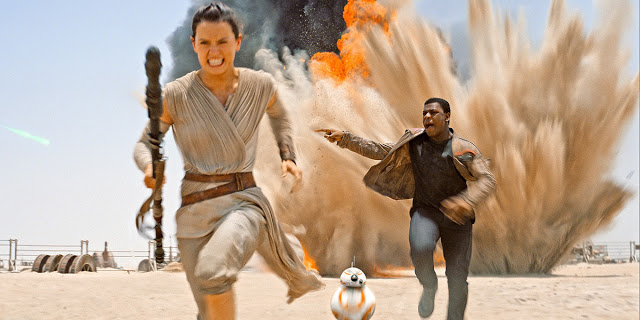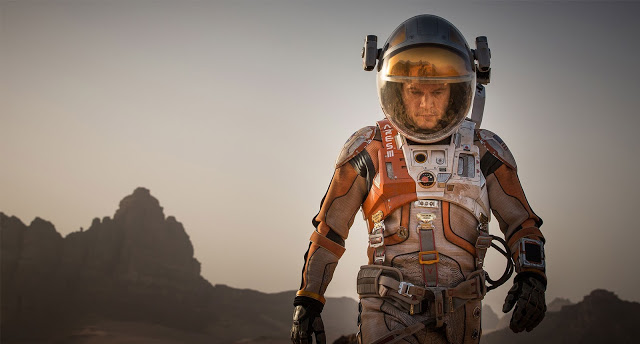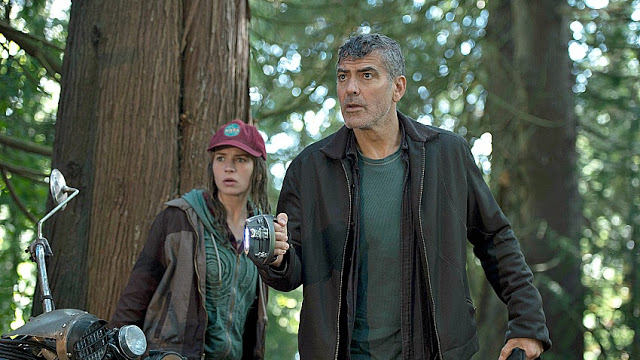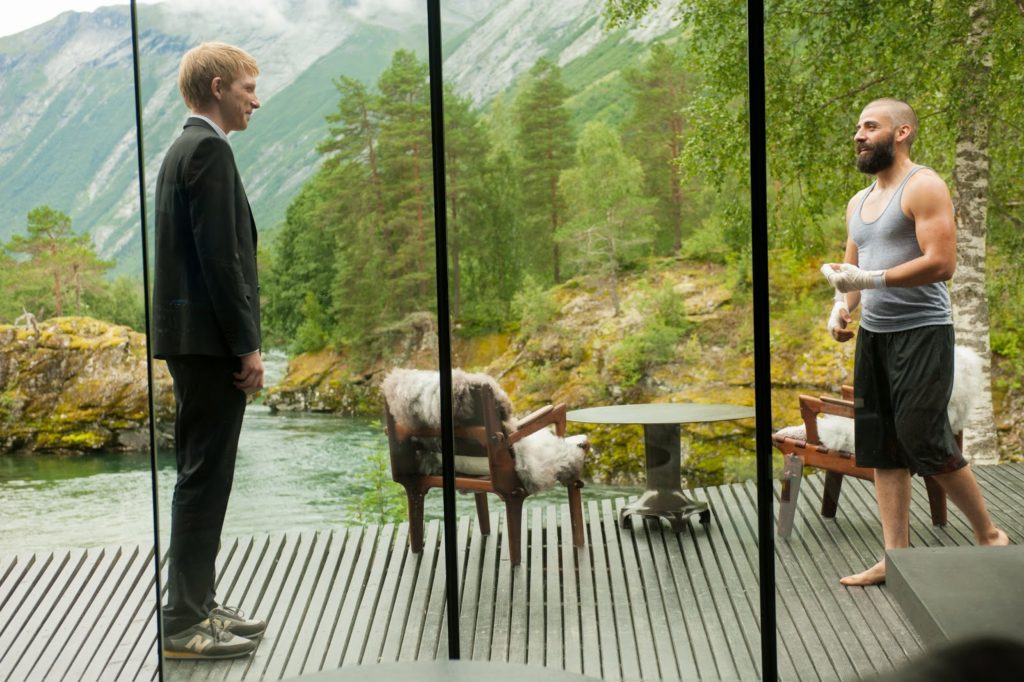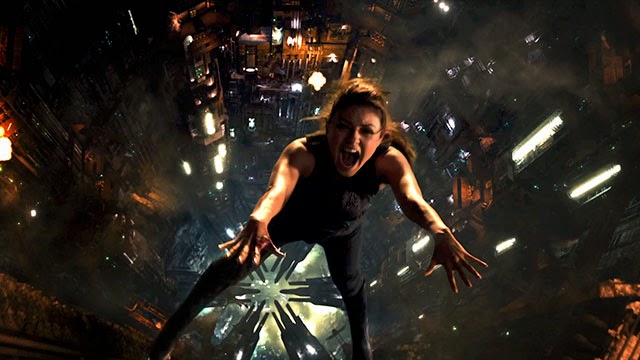Star Wars: Episode VII—The Force Awakens: Getting the Cantina Band Back Together, with New Faces at the Fore
Amid all the majestic sights and sounds of Star Wars: The Force Awakens—the dogfights and lightshows, the exotic environments and the aircraft careening through outer space—no image hits harder than that of a stormtrooper’s helmet smeared with blood. That shot, which comes during an otherwise typical firefight early in the film, clubs you with the force of a wampa ice creature, and it establishes that director J.J. Abrams is invested in bringing the humanity back to this towering franchise, with its legions of fans and its box-office dominion. The Force Awakens is as loud and actively busy as any Star Wars movie—this is the series’ seventh episode, in case you needed reminding—but it’s also rooted in its characters, trading George Lucas’s unparalleled mastery of action (and utter disinterest in actors) for some good old-fashioned storytelling. Obi-Wan Kenobi once remarked (somewhat infamously) that stormtroopers shoot straight. Abrams shows us that they bleed.
And so do filmmakers. The digital effects of The Force Awakens are impressively invisible, but you can still see the sweat that Abrams poured into this production, the heartfelt labor of a true fanboy. He’s undertaken quite the challenge, tasked both with servicing the masses of ticket-buyers who consider Star Wars their personal property and with propelling the franchise forward into uncharted space. It’s a line he straddles with extreme caution, but he mostly gets it right. The Force Awakens is not the best Star Wars movie, nor is it the most dazzling. But it remains a sturdy, highly satisfying production that flashes glimmers of true greatness, and it skillfully advances the series’ mythology while simultaneously reuniting us with old friends long gone. This may not be the work of a Jedi master—Abrams is more of a tinkerer than a virtuoso—but then, it’s the everymen who made Star Wars so appealing in the first place. Read More

